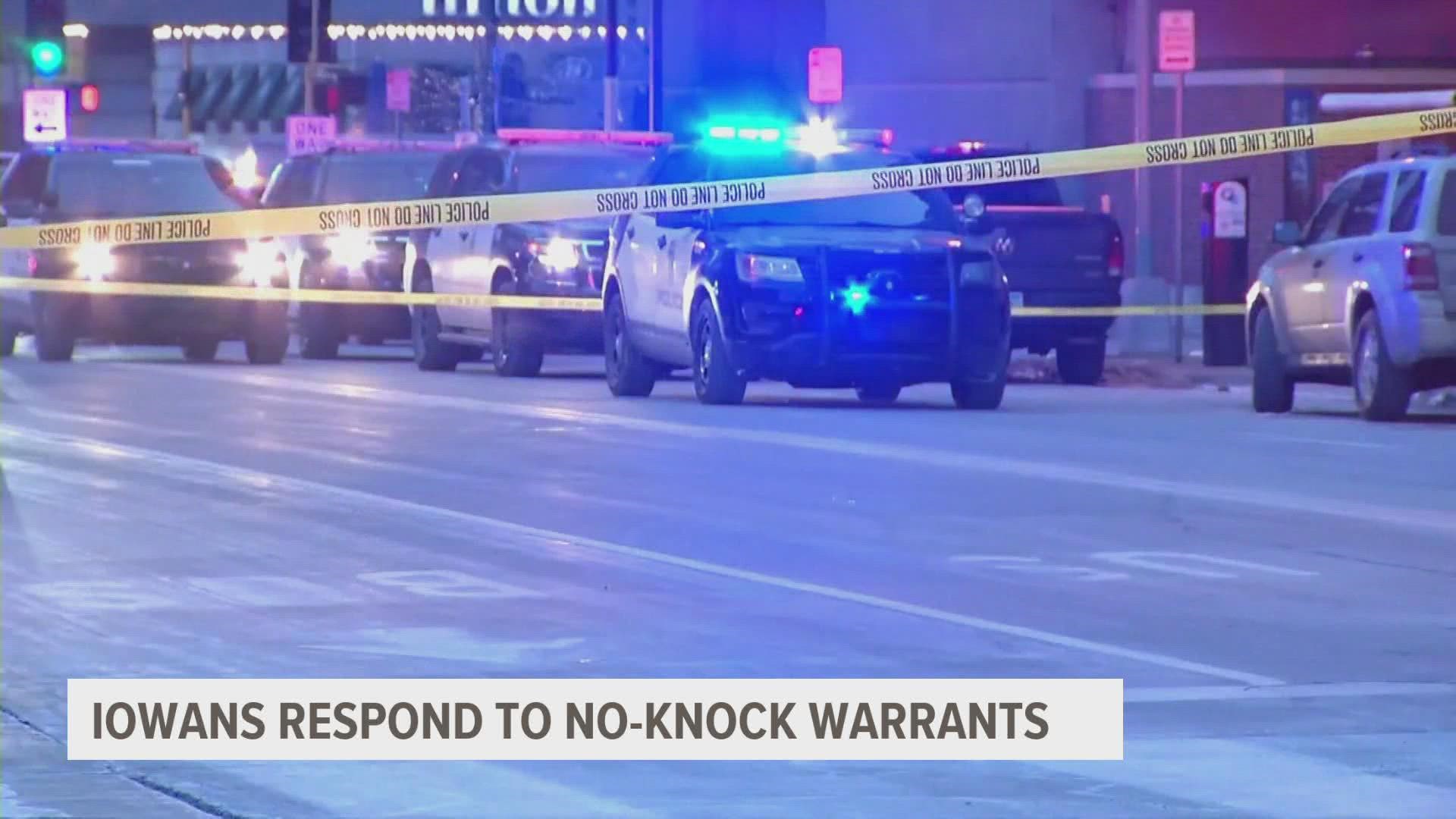DES MOINES, Iowa — As Democratic lawmakers in Minnesota put together a plan to ban no-knock warrants, activists in Iowa and across the country are calling for similar action.
The renewed discussion follows the death of 22-year-old Amir Locke, who was shot and killed by Minneapolis police officers serving a no-knock warrant last week.
Robert Rigg, a professor at Drake University and director of the school's criminal and defense law program, said no-knock warrants are high risk, low reward.
"I think it's inherently dangerous," Rigg said. "The danger outweighs any value you're going to get in terms of apprehension of suspects and collection of evidence."
Jaylen Cavil, a Des Moines Black Liberation Movement (BLM) activist and Democratic candidate for Iowa House, said the legislative progress on these issues since the death of Breonna Taylor has been slow-moving.
"The current system that we have right now, like I said, is killing over 1000 people every year, people are dying from police violence," Cavil said. "And nothing's being changed about it. We haven't seen change at the federal level since you know, the uprisings of 2020."
Riggs said no-knock warrants are extremely rare in Iowa. He also noted the circumstances that permit them typically stem from concerns about officers' safety or protection of evidence.
"You have to consider the exigent circumstances—in other words, there's reasonable probability, or reasonable suspicion, to believe that the warrant or the no-knock entry would be necessary in order to protect yourself, protect others, or to preserve evidence," Riggs said. "Destruction of evidence is typically used as a justification for no knock situations."
Cavil says no-knock warrants are part of the problem, but they point back to a larger issue.
"We have to see systemic change," he said. "These small reforms that we're fighting for, these small pieces of legislation here and there, to try to address some police accountability or some police reform. It's not enough, it won't be enough."
Local 5 reached out to several area law enforcement officials and agencies, but those who got back to us declined to comment.
In Minnesota, lawmakers are still drafting the exact language, but sponsors say the bill banning no-knock warrants will only allow exceptions for kidnappings and other situations when an innocent person's life is at risk.
WATCH | Minneapolis leaders meet to discuss no-knock warrant policies

